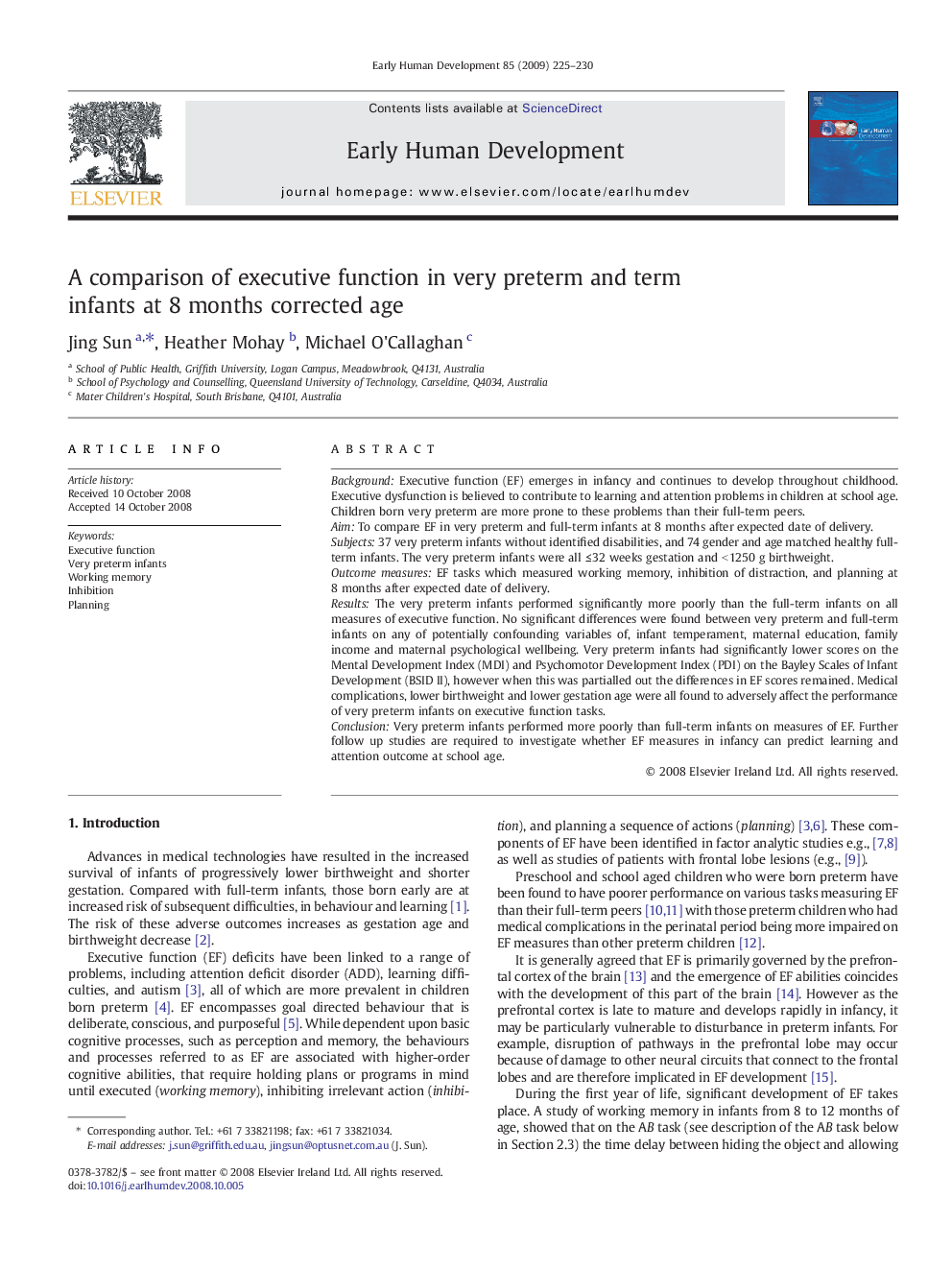| Article ID | Journal | Published Year | Pages | File Type |
|---|---|---|---|---|
| 3917746 | Early Human Development | 2009 | 6 Pages |
BackgroundExecutive function (EF) emerges in infancy and continues to develop throughout childhood. Executive dysfunction is believed to contribute to learning and attention problems in children at school age. Children born very preterm are more prone to these problems than their full-term peers.AimTo compare EF in very preterm and full-term infants at 8 months after expected date of delivery.Subjects37 very preterm infants without identified disabilities, and 74 gender and age matched healthy full-term infants. The very preterm infants were all ≤ 32 weeks gestation and < 1250 g birthweight.Outcome measuresEF tasks which measured working memory, inhibition of distraction, and planning at 8 months after expected date of delivery.ResultsThe very preterm infants performed significantly more poorly than the full-term infants on all measures of executive function. No significant differences were found between very preterm and full-term infants on any of potentially confounding variables of, infant temperament, maternal education, family income and maternal psychological wellbeing. Very preterm infants had significantly lower scores on the Mental Development Index (MDI) and Psychomotor Development Index (PDI) on the Bayley Scales of Infant Development (BSID II), however when this was partialled out the differences in EF scores remained. Medical complications, lower birthweight and lower gestation age were all found to adversely affect the performance of very preterm infants on executive function tasks.ConclusionVery preterm infants performed more poorly than full-term infants on measures of EF. Further follow up studies are required to investigate whether EF measures in infancy can predict learning and attention outcome at school age.
